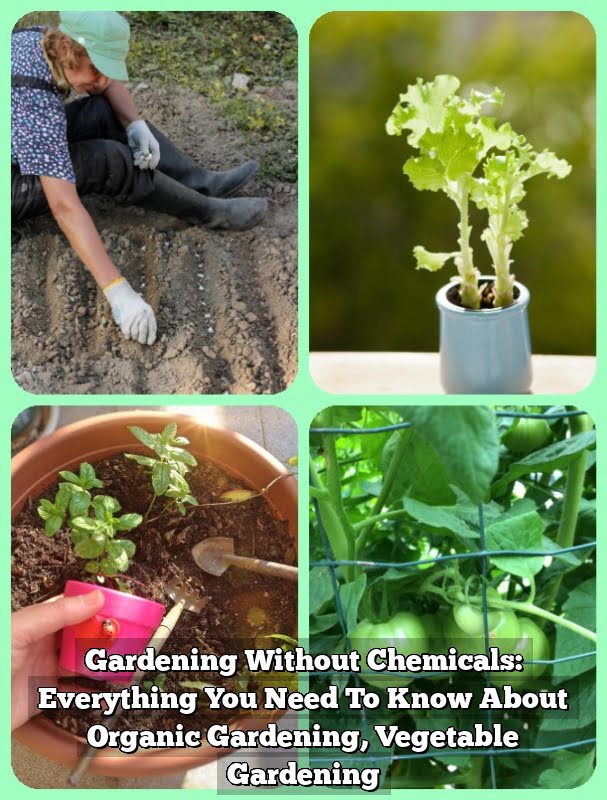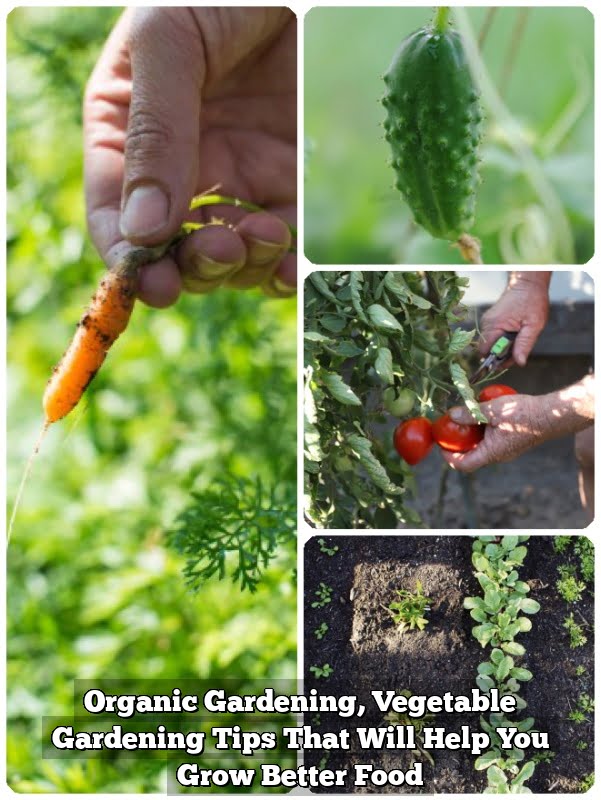Are you interested in starting a vegetable garden in Pennsylvania? Whether you’re a seasoned gardener or just starting out, vegetable gardening in PA offers a wide variety of opportunities to grow your own fresh produce.
This article will provide you with essential information on choosing the right vegetables for Pennsylvania’s climate, preparing the soil, planting and caring for your vegetables, dealing with common pests and diseases, harvesting and storing your produce, tips for extending the gardening season, and connecting with the vibrant vegetable gardening community in Pennsylvania.
Pennsylvania’s diverse climate and soil types make it an ideal location for growing a wide range of vegetables. From the cool temperatures of the northern regions to the milder climate of the central part of the state, there are plenty of options for cultivating a successful vegetable garden. By following the guidelines outlined in this article, you can maximize your chances of having a bountiful harvest while enjoying the many benefits of vegetable gardening in PA.
Whether you have limited space or an expansive backyard, vegetable gardening is a rewarding activity that allows you to enjoy fresh, nutritious produce right from your own yard. With some careful planning and preparation, you can create a thriving garden that provides you with an abundance of homegrown vegetables throughout the growing season. Read on to learn how to get started and make the most of your vegetable garden in Pennsylvania.
Choosing the Right Vegetables for Pennsylvania’s Climate
When it comes to vegetable gardening in Pennsylvania, one of the most important factors to consider is the state’s climate. Pennsylvania has a diverse climate, with temperatures ranging from hot and humid in the summer to cold and snowy in the winter. Therefore, choosing the right vegetables for Pennsylvania’s climate is crucial for a successful garden.
In Pennsylvania, some vegetables that thrive in the climate include tomatoes, peppers, squash, and cucumbers. These warm-season vegetables do well in the hot and humid summers of Pennsylvania. Additionally, cool-season vegetables such as lettuce, carrots, and broccoli are well-suited for the milder temperatures of spring and fall in the state.
It’s important to select vegetable varieties that are specifically adapted to Pennsylvania’s climate. Look for vegetables labeled as suitable for “northern” or “cool-season” climates when purchasing seeds or seedlings for your garden. These varieties are better equipped to handle the temperature fluctuations and weather conditions that Pennsylvania experiences throughout the year.
| Vegetable | Recommended Varieties |
|---|---|
| Tomatoes | Rutgers, Early Girl, Celebrity |
| Peppers | Bell peppers (all colors), Jalapeno, Cayenne |
| Squash | Zucchini, Yellow Squash |
| Cucumbers |
When planning your vegetable garden in Pennsylvania, consider a mix of both warm-season and cool-season vegetables to make the most of the state’s diverse climate. By choosing the right vegetables for Pennsylvania’s climate and selecting appropriate varieties, you can set yourself up for a bountiful harvest throughout the growing season.
Remember that researching which specific plants grow best within your USDA Hardiness Zone will help you get started with a fitting selection process. Collaborating with local farmers or taking consultations at gardening centers would yield proper guidance on selecting seeds or seedlings as per your region’s requirements can be incredibly beneficial when getting started with vegetable gardening in PA.
Preparing the Soil for a Successful Vegetable Garden
When it comes to vegetable gardening in PA, preparing the soil is a crucial step for ensuring a successful harvest. The right soil composition can provide the necessary nutrients for your vegetables to thrive. Here are some tips for preparing the soil for your vegetable garden in Pennsylvania:
1. Test the soil: Before you start planting, it’s important to test the soil pH and nutrient levels. You can purchase a soil testing kit or contact your local cooperative extension office for assistance. This will help you determine if any amendments are needed to adjust the pH or add nutrients.
2. Amend the soil: Based on the results of your soil test, you may need to amend the soil with organic matter such as compost, well-rotted manure, or peat moss. These amendments can improve the structure and fertility of the soil, providing a better environment for your vegetable plants’ root development.
3. Tilling and preparing raised beds: Once you have amended the soil, you can till it to incorporate the amendments and break up any compacted areas. For those who prefer raised bed gardening, this is also the time to prepare your raised beds by filling them with a mixture of topsoil and compost.
By taking these steps to prepare your soil, you can create an ideal environment for your vegetable plants to grow and thrive in Pennsylvania’s climate. Remember that different vegetables have specific needs when it comes to soil composition, so it’s important to research each type of vegetable you plan to grow in order to provide them with the best possible growing conditions.
Planting and Caring for Vegetables in Pennsylvania
When it comes to planting and caring for vegetables in Pennsylvania, there are a few key factors to keep in mind. First and foremost, it’s important to select the right varieties of vegetables that are well-suited to Pennsylvania’s climate. This means choosing vegetables that can withstand the state’s hot summers and cold winters.
Once you have selected the right vegetables for your Pennsylvania garden, proper planting is essential for their success. In general, most vegetable crops should be planted after the last frost date, which typically occurs in late April or early May in much of Pennsylvania. It’s also crucial to ensure that your vegetables receive adequate sunlight, water, and nutrients from the soil.
Caring for your vegetable garden in Pennsylvania also involves regular maintenance, such as weeding, watering, and pest control. Mulching can help retain moisture and suppress weeds, while also providing some insulation against temperature fluctuations. Additionally, staying vigilant for signs of common pests and diseases is crucial when caring for your vegetable garden. By carefully monitoring your crops and taking proactive measures when necessary, you can help ensure a bountiful harvest of fresh produce from your Pennsylvania garden.
| Planting Tips | Caring Tips |
|---|---|
| Choose vegetables suited to PA climate | Regular weeding |
| Plant after last frost date | Mulch to retain moisture |
| Ensure adequate sunlight, water, nutrients | Vigilant pest & disease monitoring |
Dealing With Common Pests and Diseases in Pennsylvania
Pest Management
When it comes to vegetable gardening in Pennsylvania, dealing with common pests is a significant challenge. Some of the most common pests that can wreak havoc on your vegetable garden include aphids, cutworms, and cabbage loopers. To manage these pesky invaders, it’s important to stay vigilant and regularly inspect your plants for signs of infestation. Consider using natural remedies such as neem oil or insecticidal soap to keep pest populations under control without harming beneficial insects.
Disease Prevention
In addition to pests, Pennsylvania vegetable gardeners also face the challenge of preventing and managing plant diseases. Common diseases in the region include powdery mildew, blossom end rot, and early blight. To prevent these diseases from taking hold in your garden, it’s crucial to practice good sanitation by removing any diseased plants or plant debris promptly. Additionally, proper spacing between plants can promote good air circulation and reduce the risk of disease spread.
Integrated Pest Management
For an effective approach to managing pests and diseases in your Pennsylvania vegetable garden, consider implementing an integrated pest management (IPM) strategy. IPM focuses on using a combination of cultural practices, biological controls, and least-toxic pesticides to minimize the impact of pests and diseases while maintaining environmental responsibility. By taking a holistic approach to pest and disease management, you can increase the resilience of your vegetable garden and reduce the need for chemical interventions.
As vegetable gardening in PA is inherently tied to its unique climate and growing conditions, understanding how to effectively deal with common pests and diseases is essential for a successful harvest. By being proactive in pest management, practicing disease prevention measures, and implementing an integrated pest management strategy, Pennsylvania gardeners can overcome these challenges and enjoy bountiful yields from their vegetable gardens.
Harvesting and Storing Vegetables in Pennsylvania
Harvesting and storing your vegetables is the culmination of all your hard work in your Pennsylvania vegetable garden. Here are some tips for ensuring a successful harvest and proper storage of your produce:
1. Timing: It’s important to harvest your vegetables at the right time to ensure peak flavor and freshness. Keep an eye on the maturity dates for each vegetable variety, as well as visual cues such as color, size, and texture.
2. Harvesting: When it comes to harvesting, gentle handling is key to prevent damage to the vegetables. Use a sharp knife or pruning shears to carefully cut the vegetables from the plant, taking care not to bruise or injure the surrounding foliage.
3. Storing: Proper storage is crucial for prolonging the shelf life of your harvested vegetables. Some vegetables can be stored in a cool, dark place such as a basement or root cellar, while others may require refrigeration. It’s important to research the specific storage requirements for each type of vegetable you grow.
By following these tips for harvesting and storing your vegetables in Pennsylvania, you can enjoy the fruits of your labor well beyond the growing season.
4. Canning and Freezing: Another popular method for preserving excess produce is canning or freezing. Canning involves processing vegetables in glass jars at high temperatures to kill bacteria and prevent spoilage, while freezing involves blanching vegetables before freezing them at low temperatures.
5. Sharing with Others: If you find yourself with an abundance of vegetables from your Pennsylvania garden, consider sharing with friends, family, or local food banks. This not only prevents waste but also builds community connections and spreads the joy of homegrown produce.
Whether you choose to store, preserve, or share your harvest, there are many rewarding ways to make the most of your fresh Pennsylvania-grown vegetables.
Tips for Extending the Vegetable Gardening Season in Pennsylvania
Pennsylvania is known for its diverse climate, with hot summers and cold winters. To make the most out of your vegetable garden in Pennsylvania, it’s important to take advantage of the growing season and even extend it as much as possible. Here are some tips for extending the vegetable gardening season in Pennsylvania.
One way to extend the vegetable gardening season in Pennsylvania is by utilizing season extension techniques such as using row covers, cold frames, or high tunnels. These methods can help protect your crops from frost and cold temperatures, allowing you to plant and harvest vegetables for a longer period of time.
Another tip for extending the vegetable gardening season in Pennsylvania is to choose varieties of vegetables that are well-suited for cooler temperatures. For example, you can plant cold-hardy vegetables like kale, spinach, carrots, and beets that can withstand lower temperatures and continue to grow into the fall and winter months.
Additionally, consider planting a second round of quick-maturing vegetables in mid-summer to ensure a continuous harvest well into the fall. Vegetables like lettuce, radishes, and green onions can be planted later in the season for a late harvest. By incorporating these strategies into your vegetable gardening in PA, you can enjoy fresh produce from your garden for an extended period of time.
Connecting With the Pennsylvania Vegetable Gardening Community
When it comes to vegetable gardening in PA, it’s important to remember that you are not alone in your journey. There is a robust and supportive community of fellow gardeners throughout the state who are more than willing to share their experiences and expertise. Connecting with this community can provide valuable insights, tips, and even some new friendships.
Join Local Gardening Clubs and Organizations
One great way to connect with other vegetable gardeners in Pennsylvania is to join local gardening clubs or organizations. These groups often hold regular meetings, workshops, and events where you can learn from experienced gardeners and exchange ideas with like-minded individuals. Not only will you gain valuable knowledge, but you may also find a strong support network that can offer encouragement and advice when facing challenges in your own garden.
Attend Garden Tours and Events
Throughout Pennsylvania, there are numerous garden tours, fairs, and other events dedicated to celebrating the art of vegetable gardening. Attending these events not only allows you to see firsthand the successes of other local gardeners but also provides an opportunity to network and connect with others who share your passion for growing vegetables. You may even pick up some innovative techniques or discover new varieties of vegetables that thrive in Pennsylvania’s climate.
Utilize Online Resources
In today’s digital age, connecting with the Pennsylvania vegetable gardening community has never been easier. There are online forums, social media groups, and websites dedicated specifically to gardening in PA.
These platforms allow you to ask questions, seek advice, and share your own experiences with a large community of fellow gardeners from across the state. Whether you’re a seasoned gardener or just starting out, these online resources offer a wealth of information and camaraderie for anyone interested in vegetable gardening in PA.
Conclusion
In conclusion, vegetable gardening in Pennsylvania offers a rewarding and fulfilling experience for both novice and seasoned gardeners. The state’s diverse climate and rich soil provide an ideal environment for growing a wide variety of vegetables. By choosing the right vegetables for Pennsylvania’s climate and properly preparing the soil, gardeners can enjoy a bountiful harvest of fresh, nutritious produce.
Despite the challenges posed by common pests and diseases in Pennsylvania, with proper care and attention, gardeners can minimize their impact and ensure the success of their vegetable garden. Additionally, by following tips for extending the gardening season, such as using season extenders and cold frames, individuals can continue to enjoy fresh vegetables well into the fall months.
Furthermore, connecting with the Pennsylvania vegetable gardening community can provide valuable support, advice, and resources to enhance one’s gardening experience. Whether through local gardening clubs or online forums, sharing knowledge and experiences with fellow gardeners can foster a sense of community and camaraderie. Ultimately, vegetable gardening in Pennsylvania is not only a practical way to access fresh produce but also a deeply satisfying endeavor that brings joy and fulfillment to those who partake in it.
Frequently Asked Questions
What Vegetables Grow Best in Pennsylvania?
Pennsylvania’s climate and growing conditions make it ideal for growing a variety of vegetables. Some of the best vegetables to grow in Pennsylvania include tomatoes, peppers, cucumbers, zucchini, squash, lettuce, spinach, kale, and carrots.
When Should I Start Planting My Garden in PA?
The best time to start planting a garden in Pennsylvania is in late April to early May. This timing allows for the soil to warm up and reduces the risk of frost damage to delicate seedlings. It’s important to check the specific planting dates for different vegetables.
What Month Should I Plant My Vegetable Garden?
In Pennsylvania, the ideal month to plant a vegetable garden depends on the specific vegetables being grown. Cool-season vegetables like lettuce and spinach can be planted as early as March or April, while warm-season crops like tomatoes and peppers are typically planted in May after the last frost date.
The key is to tailor planting times to each vegetable’s specific needs and the local climate.

If you’re looking to get into vegetable gardening, or are just looking for some tips on how to make your current garden better, then you’ve come to the right place! My name is Ethel and I have been gardening for years. In this blog, I’m going to share with you some of my best tips on how to create a successful vegetable garden.





